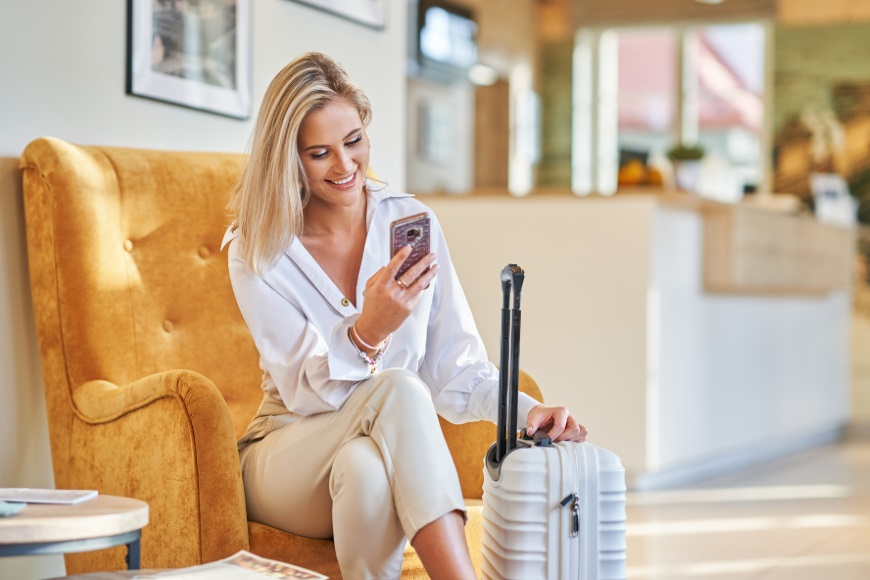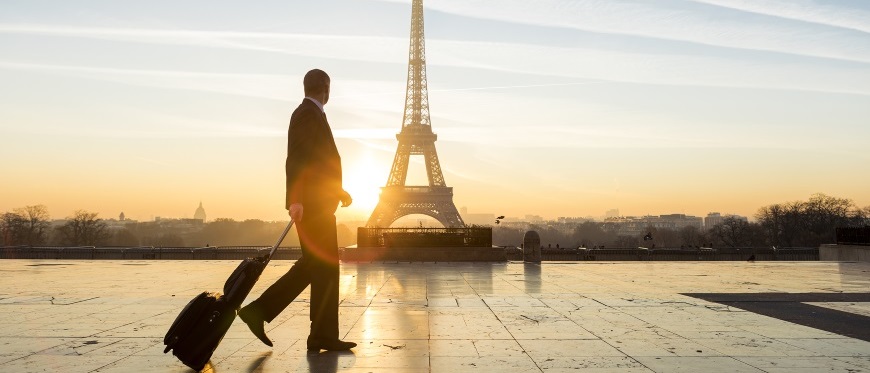Business or pleasure? It’s a classic question that many travel operators, airlines and hoteliers ask to gain a better understanding of their customers travel motivations. Usually, the answer is straightforward one way or the other. However, the travel landscape is changing, and the lines between traveling for business and pleasure are increasingly blurred.
According to travel company Expedia, 43%1 of business trips now include a leisure component. Bleisure travel is one of the fastest growing concepts in the industry, which means that hotel managers might like to consider placing greater focus on the needs of corporate travelers who want to enjoy leisure time during their trip.
What exactly is this specific category of customer looking for? Here, we explore the rise of bleisure travel, and examine how hoteliers can create an amazing guest experience.
The ‘bizcation’ boom
Bleisure travel is a fairly new buzzword in the travel industry. Also known as a ‘bizcation’, bleisure travel is a term is used to describe trips that combine work and pleasure. For example, they might extend the duration of their stay at your hotel in order to relax, hike, sightsee or attend events outside of meetings and business hours.
At a company level, facilitating bleisure travel may help increase the number of employees willing to go away on business trips, as the primary advantages are likely to be a boost in morale and productivity as reducing stress. For the travel industry, and hotels in particular, the rise of the bleisure tourist means hotel guests are willing to stay longer and spend more money in the process.
One study found that bleisure travelers often make frequent trips – 32% travel for work once or twice a month, and 71% of business trips are two to three nights in duration1. These travelers work in common industries including technology, healthcare, public administration and manufacturing. According to the American Hotel Lodging Association State of the Industry Report 20222 it’s particularly important for digital nomads – those who can work flexibly from anywhere using the internet.
Ensuring that these guests are well catered for may mean examining your accommodation experience – in particular how well it facilitates both professional productivity (desk and chair alongside fast, reliable internet connection to enable remote work) and recreation (comfortable bed and furniture, clean room, entertainment options).
How hoteliers can maximize bleisure travel opportunities

Hotel managers who understand and cater to the needs of bleisure travel guests may benefit from longer stays and higher levels of customer satisfaction. The majority of bleisure travelers stay at the same hotel or property for both the business and leisure portions of their trip. They tend to extend their stays for days rather than months – 47% of business travelers surveyed in the year prior to May 2022 had extended a trip by a few days to incorporate some leisure time2.
Providing a memorable experience is key in attracting returning customers. The priority for business, leisure and bleisure travelers when it comes to choosing a hotel remains the same: cleanliness is key (alongside appearance and price). According to the results of a survey, cleanliness and hygiene now rank highest among customer considerations – surpassing cost and all other factors at 57%3.
Hotels are no longer just a place to sleep in. For all travelers, bleisure guests included, a clean and comfortable hotel plays an important part of their overall travel experience. Guests have enhanced expectations on hygiene protocol and are expecting hotels to live up to these standards. To help you create a flawless experience across all touchpoints, Tork offers products and services such as certified hand sanitizer and liquid soap that can help raise the hygiene standards in your hotel.
Sources
1 Business Wire: Business trips extended
2 AHLA: Midyear SOTI Report 2022
3 Travel Pulse: Cleanliness top priority for travelers
